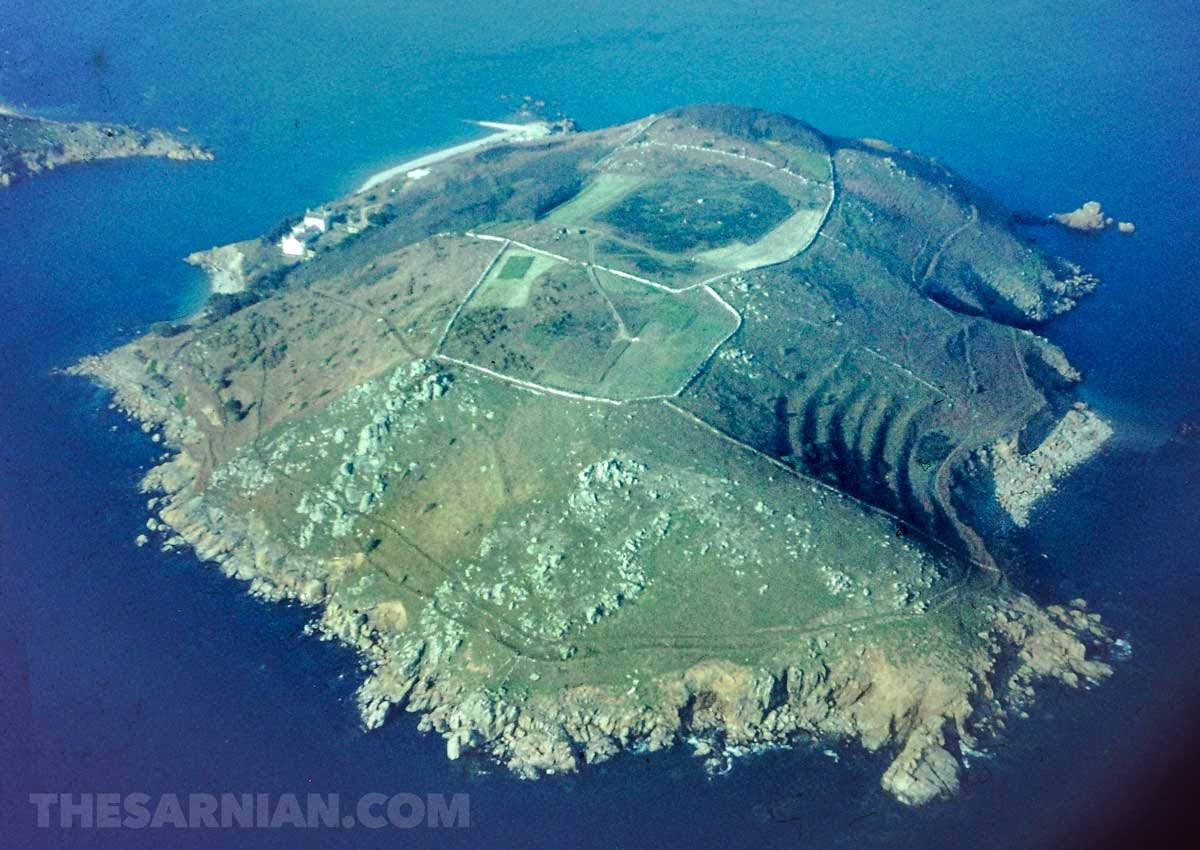Guernsey board game hits the shelves
PLUS: Jethou's new owner + Guernsey workers demand a pay rise
Guernsey Monopoly goes on sale
The Guernsey Monopoly board game was released this week in 2013. It featured local landmarks such as Castle Cornet and St. Peter Port harbor. The game was produced by Winning Moves and is a Bailiwick remake, including landmarks beyond Guernsey's shores such as Alderney lighthouse and railway, the Seigneurie and Coupee on Sark, and Belvoir Bay and Shell Beach representing Herm. The game is one of several regional editions produced in the game's long history, which can be traced back to the Landlord's Game developed by Elizabeth Magie in 1903.
Jethou’s new owner
Sir Charles Hayward paid £91,000 for the lease of the 44-acre island of Jethou this week in 1971. The island had been put up for auction by Susan Faed and her husband Angus, who had lived on Jethou since 1964. Hayward and his wife initially asked to remain anonymous and did not move onto the island for two years after completing the legal process of the sale in December 1971. Sir Charles Hayward died on Jethou aged 90 on February 3, 1983. His wife Lady Elsie Hayward put Jethou back on the market for offers over £500,000 in June, four months after Sir Charles’ death. It was bought in February the following year by a new tenant who, like the Haywards, chose to remain anonymous.
From Channel Island to Desert Island…
Dame Sibyl Hathaway, the ruler of Sark, appeared on the BBC's Desert Island Discs this week in 1971. She discussed her life story, including living under German occupation, and shared her selection of eight classical records, one book, and a luxury item that she would take with her to a desert island. Her book of choice was the History of England by Sir Keith Feiling, and her luxury item was canvas and tapestry tools to weave her own Bayeux-style tapestry of the history of Sark or her own life. The episode is still available on the BBC website.
Desalination plant gets to work
Guernsey's seawater distillation plant at La Hure Mare, Vale was opened this week in 1960 by the Secretary of State for the Home Department, R A Butler. The plant was capable of distilling 80,000 gallons of seawater into 20,000 gallons of raw water every hour, which was particularly important for an island like Guernsey that relied on agriculture and tomato exports for a portion of its income. The plant worked by using heat to boil off seawater, leaving the salt behind. Initially, it was a great success but ultimately proved uneconomical and was abandoned within 10 years in favor of traditional above-ground water storage facilities, particularly in the island’s quarries.
GUNS journalist dies in German captivity
Charles Machon was a linotype operator at The Guernsey Star and Gazette when he came up with the idea of GUNS, the Guernsey Underground News Sheet. The publication was filled with BBC news stories that the team behind it had copied down the previous night and that morning while listening to a banned radio. Around 300 copies of each edition were produced daily and widely circulated from hand to hand. Machon confessed his involvement when the German authorities threatened to arrest his mother. He was sentenced on 24 April 1944 to two years and a month of hard labour and sent, initially, to Rheinbach prison. He died in Hamelin prison hospital this week in 1944, officially as a result of a stomach ulcer. He was 51 years old.
Bailiff born in St Peter Port
Bailiff Sir Peter de Havilland was born in Guernsey this week in 1747. He was one of thirteen children and became Bailiff of Guernsey at the age of 63, a position he held until his death at the age of 73. De Havilland was a native French speaker who spent three years in the coastal French town of Sete, where he learned about the wine trade.
Upon his return to Guernsey, he trained as a lawyer but was forced to resign from the law at the age of 30 to sidestep the challenge of a duel. He then turned to privateering, investing in other privateers' ships and earning himself an income without risking anything more than a little currency. De Havilland invested his money in property, constructing several streets on his own land and selling plots along them to builders.
Finally, in 1810, he was appointed Bailiff and worked with John Doyle to make sure Doyle's proposals for building new roads to Rocquaine and Vazon were approved. His support of these military roads helped earn him a knighthood in 1817.
The de Havilland name is perhaps best known for its association with aviation, as Peter's great-great-grandson was Geoffrey de Havilland, designer of the Comet and Mosquito aircraft.
Workers demand a raise
Guernsey's stone crackers demanded a pay rise this week in 1915. Their case was brought to the attention of Parliament by James O'Grady, MP for Leeds East. The stone crackers were paid either 17 or 18 shillings a week, and the firms had refused to submit the matter to arbitration. The firms in question had a contract to supply the government with macadam, but the Chief Industrial Commissioner had already looked into the case and decided that the stone crackers were not important enough to the war effort to be given their pay rise. O'Grady was a trade unionist and member of the Labour Party.





